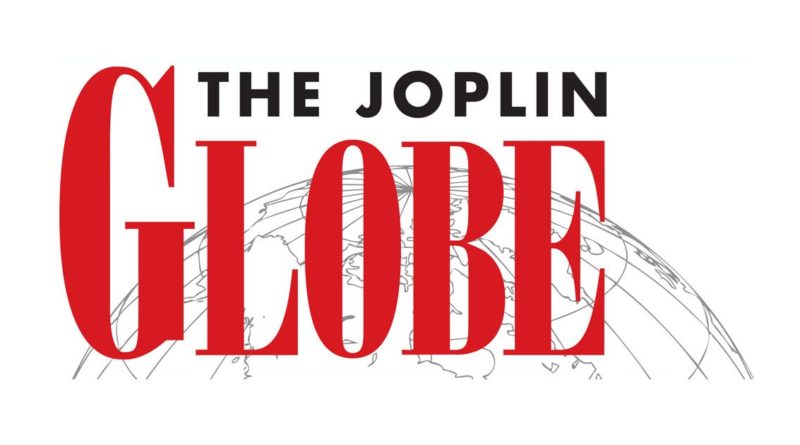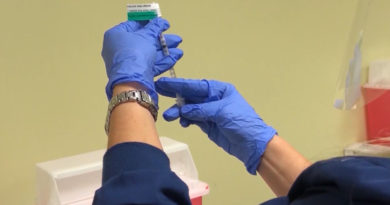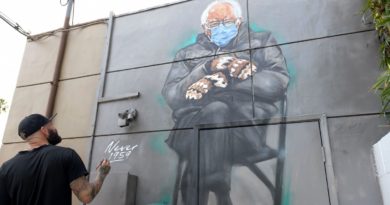One year later: Fall 2020 was low point in COVID-19 crisis | Local News
What a difference a year makes.
Around this time last year, COVID-19 cases at Joplin’s two hospitals had reached all-time highs, with hospitalizations in the 50s and 60s, and COVID-19-related deaths recorded on an almost daily basis.
The Joplin metro area previously had been in a so-called bubble since the national lockdown of March and April 2020. There had been numerous cases and deaths recorded by officials with both Freeman Health System and Mercy Hospital Joplin, but nothing like what the rest of the nation or even the urban areas of Missouri were experiencing at the time.
“You expected that things would blow up like” they did in the Joplin area last November, but at that time, “we were not hit initially like other places in the U.S. or even in St. Louis,” said Dr. Saima Memon, medical director of the critical care department and medical director for respiratory therapy at Mercy Hospital Joplin. “And then Northwest Arkansas was hit, and again it missed us, so we were kind of hopeful that by time it did hit us” either the vaccines would be available or “we may be able to overcome it better.”
That almost happened. Mercy’s Dr. Eden Esguerra was the first Joplin resident to receive the Pfizer vaccine at 1:30 p.m. on Tuesday, Dec. 14. She called it an “amazing day.”
Late, but not late enough
The second wave of the original COVID-19 strain took root in the Joplin area over the last week of October, stirred up by Halloween activities. It would take hold and began wreaking havoc throughout the month of November.
“November 2020 was an exhausting month,” said Dr. Rob McNab, director of Freeman Health System’s COVID-19 unit. “In that month, the volume of COVID patients exploded, reaching a peak of around 60 patients in-house. Though we had more … resources to care for these critically ill patients, we were also a year into the pandemic, and thus emotionally and physically drained.”
Those rising numbers, McNab continued, “brought a feeling of getting further away from our goal of controlling the situation and being able to assert more normalcy into our lives.”
It was definitely a challenging month, added Paula Baker, Freeman’s president and CEO, “but I think it’s hard for me to pinpoint an exact low point because when (COVID-19) first emerged with all of the uncertainty and all the fears that people had … it was definitely something very new and very different and, frankly, very terrifying. When it first emerged, nobody really knew the ramifications or what to expect — where would it go and when would it stop, or would it ever stop.”
From mid-March through Oct. 30, 2020, the Joplin Health Department recorded 2,209 positive COVID-19 cases and 36 deaths. During that same time period, health departments in Jasper and Newton counties reported 3,556 cases and 54 deaths and 2,222 cases and 33 deaths, respectively.
By the morning of Dec. 1, 2020 — a span of just 31 days — Joplin’s cases had increased by 1,406 verified cases and 26 deaths. Jasper County recorded increases of nearly 2,000 cases and 21 deaths. Newton County’s cases had risen from 2,222 to 3,147, with 14 deaths. All told, Jasper and Newton Counties, including Joplin, recorded 4,311 positive COVID-19 cases and 61 deaths during the month of November.
“It was very traumatic,” Memon said of last November. “Things were very, very bad, and it was a very dark time in medicine. When you’re in medical school you read about stuff like (pandemics). You read about the history of cholera … but you don’t really think you’ll ever see something like that, especially in this day and age. These days, you expect us to have a cure for everything. You hear stuff like (COVID-19) in Africa or third world countries but you don’t expect this to be happening in your neck of the woods, so yes, it was a very difficult time.”
“In one week in November, I had three fellow doctors all come down with COVID infections and had to go into isolation,” McNab said. “It seemed as if there were more and more patients to be treated by less and less doctors and nurses.”
But there was an advantage to COVID-19 arriving late in the Joplin metro area in November instead of March or June of that year. Because of that late arrival, Baker said, “we got the wisdom of what (the others) had learned while managing those early days of COVID.”
Measures taken to ‘slow the spread’
To that end, drastic changes were made to curb the rising tide of COVID-19 cases and deaths in November. During the first week of November alone, Jasper and Newton counties recorded 1,000 new cases and 17 deaths, an increase of 11.2% and 13.4%, respectively.
• On Nov. 12, both Freeman and Missouri Southern State University officials made dramatic changes to help “slow the spread,” with Freeman limiting one visitor per patient per day, while MSSU moved to online learning. On that day, there were 41 COVID-19 patients at Freeman and 47 at Mercy Hospital Joplin.
• On Tuesday, Nov. 17, Missouri hospitals were urging Missouri Gov. Mike Parson to adopt a statewide mask mandate, with Herb Kuhn, president and CEO of the Missouri Hospital Association, saying COVID-19 is “the wolf at the door” of every Missouri resident. No such mandate was ever issued from Jefferson City.
• On Wednesday, Nov. 18, representatives from Freeman, Mercy, Access Health, the Joplin Community Clinic, Kansas City University-Joplin and the Jasper County Health Department sent letters to all local government entities asking them to take action against COVID-19 to both stunt its spread and ease the strain on Joplin’s two regional hospitals.
• Just two days later, Joplin City Council members heard testimony from representatives of six hospitals and health agencies and, in a 6-3 vote, enacted a new mask mandate that remained in force until late February.
• By Nov. 22, 2020, there were an average of 3,900 new COVID-19 cases being reported by the state health department each day, with “more new cases reported in October and November than during the first eight months of the pandemic,” according to The Associated Press. The Thanksgiving holiday was muted, with local charitable dinners postponed or moved to takeout only, and the Joplin Christmas parade was canceled outright.
• On Tuesday, Dec. 1, 2020, local and state health officials stated that November 2020 was the “worst month” yet for COVID-19 infections.
Overall, “I believe that communities rallying together to protect each other (made) a dramatic impact on COVID exposure,” McNab said.
A ray of hope
By mid-December 2020, when front-line health care workers were first vaccinated, COVID-19 had sickened 13,821 and killed 223 local residents in both Jasper and Newton counties — dating back to mid-March. More than a third of those positive cases and deaths were recorded between late October to mid-December.
“The vaccine felt like a ray of hope, like ‘OK, now we have a vaccine here and you can see some light at the end of the tunnel’ now that people were getting vaccinated,” Memon said. The Pfizer and Moderna vaccines “were the game changers. We were so excited.”
“When the vaccines became available we all felt such hope and such promise for the future,” Baker added, “and that certainly has been realized.”
McNab asked what the region could do to ensure there is never again another November 2020. He quoted philosopher George Santayana: “Those who don’t learn from their past are doomed to repeat it.”
Ultimately, we need to “continue to do the things that good science has shown us are effective at limiting spread” of diseases, including hand-washing, masking, social distancing and getting vaccinated, McNab said.




